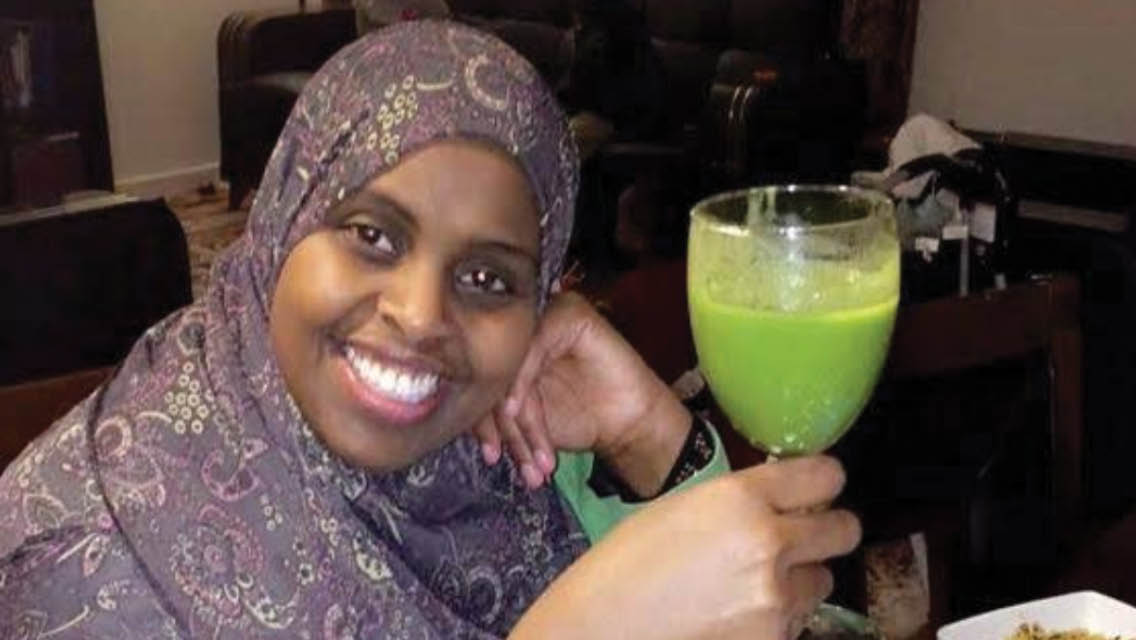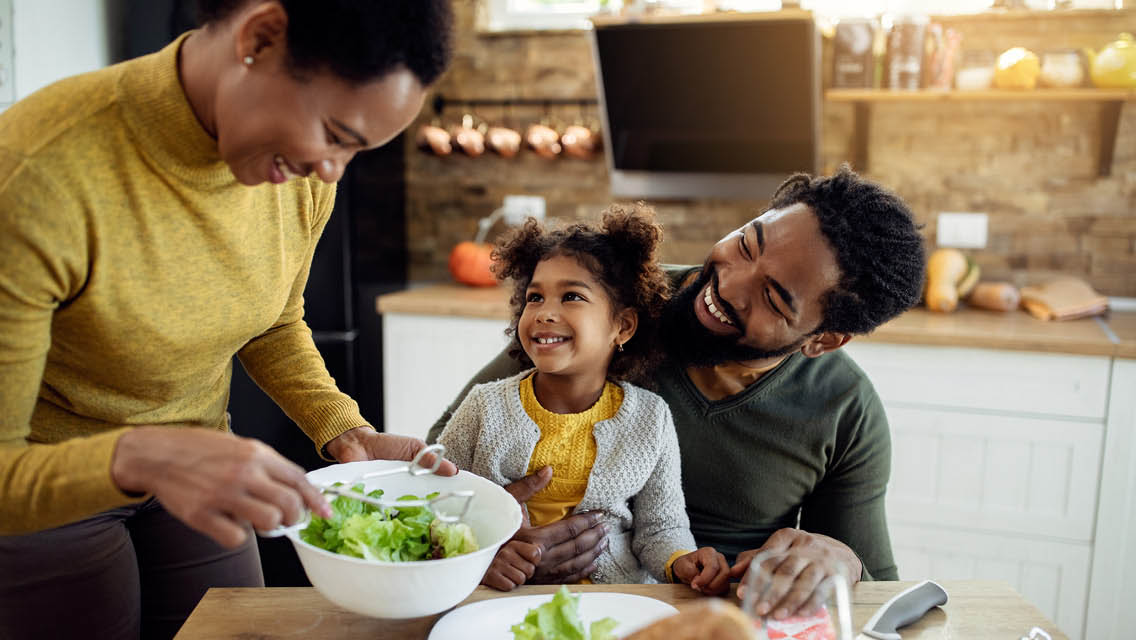I elected to undergo gastric bypass surgery in 2007, when I was 25. I made the decision based on a doctor’s recommendation, and I mistakenly believed it would end my ongoing battle with weight. It seemed to work: I quickly and easily lost 150 pounds without any health complications.
But 10 years later, in June 2017, I was sitting in my new doctor’s office for my annual examination when red highlighting on her screen alerted her that I had gained nearly 40 pounds in less than a year. I’ll never forget the gentle embrace she offered as tears of defeat ran down my cheeks.
I confessed, in a choked voice, that despite having worked so hard for my physical health, I felt like I was again at war with my body. I was overwhelmed with shame, guilt, and grief. Even after taking the most extreme measures, I was still struggling with weight issues.
Why?
Although the surgery helped me lose a lot of weight quickly, it did not help me create and maintain physical health. For me, gastric bypass put a bandage on my weight struggles without addressing the emotional wounds, unhealthy lifestyle, and yo-yo dieting that had contributed to my weight gain over the years.
Getting to the Root Cause
As painful as that moment in the doctor’s office was, it pivoted me toward a journey of physical vitality. When this issue came up in 2017 with my current, holistic doctor, she referred me to a therapist to address my eating disorder.
I began therapy and started to learn things that were antithetical to what I knew about weight management.
In one of the sessions, my therapist told me to put away my scale. Freaked out, I asked her, “But how will I know how to eat?” That’s when I realized how disconnected I was from my own intuition — when did the scale become the deciding factor in what and how I should eat?
I was able to accept what my therapist was teaching me because it was also being modeled to me by my then-4-year-old son. He knew when and how much to eat. He didn’t need to have rules about sugar; having a piece or two of candy was enough for him — even if more was available.
While learning from my therapist and my son, I became curious about how I had become so disconnected from my inner wisdom. My focus changed from weight loss to healing from the trauma that was leading me to overeat.
As a survivor of childhood sexual abuse, I hadn’t realized that being at war with my body was a result of traumatic incidents I’d experienced 30 years earlier. I discovered in therapy that I had been subconsciously operating from the psyche of a wounded child — a child helplessly and angrily punishing herself for the harm that had been inflicted on her.
This awareness helped me shift the focus to healing that child. And in healing the child, Kaltun the woman would heal, too.
My therapist once asked me, “How are you nurturing yourself?” I was silent for a long moment, contemplating the question. Did I ever stop to think about nurturing myself? What would that even look like? I felt suddenly overwhelmed by how much unlearning and relearning I needed to do.
In becoming more attentive, I found that I had been neglecting myself while caring for everyone else, and that I had developed a hardwired habit of quieting my emotional needs with food.
During the year in which I gained nearly 40 pounds, I was attending graduate school, running a small business, and leading community projects on the weekends. I did all that while being a wife and mom, trying to get pregnant, and caring for my own aging mother.
Though everything I was doing was genuinely meaningful, I was managing it all by sacrificing my own mental and physical needs. As a result, I was anxious and stressed, which led to poor food choices.
I embraced the idea of self-parenting and decided to give myself the nurturing I had needed as a child from a kind, attentive, and wise adult caregiver. I began praying and using affirmations to quiet the inner critic that leads me to feel scared and incapable. I learned to prioritize time to reflect on and discuss my thoughts and feelings, whether that be in therapy, a journal, or a meaningful conversation with a close friend.
Finally, I started engaging in playful activities that had brought me joy in childhood — swimming, being in nature, and dancing.
Intuitive Eating
About two years later, in October 2019, I sought out counseling with a dietitian. Earlier that year, I’d had a severe and rare postpartum psychosis shortly after delivering a lovely baby girl. My treatment included psychiatric medications that caused me to gain weight again despite eating for weight loss. Once more, I found myself consumed by weight-loss tools and strategies.
This time, I felt emotionally well — not stressed — and my work as a school counselor involved a lot of walking and going up and down the stairs of large school buildings. But I decided to work with a dietitian because I realized that, having been immersed in diet culture since I was 12 years old, I’d lost all sense of what and how to eat.
My mind was exhausted by the continuous search for a new way, book, or system that would offer magical weight loss. All I wanted was a sustainable and pleasurable way of eating that would free me from the hamster wheel of deprivation and overindulgence. I wanted a middle path that felt authentic.
That’s when I came across intuitive eating. In one-on-one counseling with a compassionate and skilled dietitian, I learned and reflected on the principles of intuitive eating and what it looks like to eat to live, not eat to diet. Many of the principles resonated with me, and they became instrumental in changing my relationship with food and my body.
One of those principles was respecting and loving my body. I cried at the realization that instead of gratitude for my body that was free of illness and fully functioning, I was constantly and harshly criticizing its size. I slowly started to focus my energy not on my body’s size but on its strength and capabilities. For example, one goal became reducing the time it took me to complete a four-mile walk around my favorite lake in the city.
Another principle I found easy to accept was rejecting diet culture. The reality is that we all go on a diet with the belief that it is temporary. And we often feel like a failure as we measure our success with an external scoreboard. I now understand that no single diet offers long-term success unless I’m willing to stay on it for the rest of my life.
While intuitive eating is a lifelong commitment as well, it’s one that helped me find harmony between my personal and spiritual values and the choices I make to care for my body.
On the other hand, a principle I struggled to fully embrace — despite agreeing with it — was making peace with food and not demonizing any food group. Even now, I continue to grow in allowing myself to enjoy cravings while maintaining consistency in honoring my nutritional needs.
As a bariatric patient, I found it helpful to focus on foods that make me feel energized and full for longer periods of time — foods that also offer nutritional value and flavor.
I used to see healthy meals as a punishment, and because I wasn’t a creative cook, I’d eat out frequently in search of flavor. Thankfully, I now get excited about my nutrient-dense green smoothie and multicolored meals cooked with a variety of spices. I even find myself craving my own cooking more than eating out.
For a long time, I also struggled with identifying my hunger cues. I grazed and ate in a disorderly manner that didn’t feel right for my body. As a Muslim woman who fasts during Ramadan, I realized that fasting was easy for me and left me feeling energetic and productive. I leaned on the power of spiritual fasting as well as intermittent fasting to practice listening to my hunger cues and organize my eating.
Lifelong Healthy Living
My biggest success in this journey has been my ability to tune in to my mental and emotional needs instead of numbing them with food. Since embracing intuitive eating two years ago, I have lost weight, but more important, I’ve become able to simply maintain my weight over time. I consider that a major success, because I’ve broken free of the cycle of deprivation or overeating. I am no longer on the hamster wheel, and that is an answered prayer and something I am deeply grateful for.
Yet I would be lying if I said any of this is easy or that I have mastered it. This transformation required a great deal of courage. I had to confront the deeply rooted shame that left me feeling inadequate and incapable of taking ownership of my health. For years, this shame had been screaming at me that I was a failure and that I would continue to fail at caring for myself. I’m a spiritual woman with a strong sense of connection with God, and shame made me feel sinful and unworthy in the eyes of my creator.
What helped me overcome this was acknowledging that toxic shame and offering myself compassion. That’s the moment when I breathed a sigh of relief. I felt shame being lifted off my shoulders as I forgave myself for not nourishing and loving the body I’d been gifted and entrusted with.
Fear and shame visit me at times and tell me that I will lose control of my health again. It is usually triggered by comparing my current body with pictures of my body in the past or when I give in to sugar cravings a little more than I would like. This is when I start to hear shame urge me to restrict eating so I can quickly reach a weight goal or control my sugar cravings.
When that happens, I take a deep breath and recognize the cycle of an eating disorder. I remind myself that enjoying sugar does not equal failure at caring for myself and that my intuition is wise and can be trusted.
My new physical-health priorities are to nourish, strengthen, and care for my body, and I’ve adopted measures of success that are better at determining health and vitality. For example, I track four daily habits: going for a walk or pedaling my stationary bike, drinking a nutritious green smoothie, taking my vitamins, and drinking plenty of water. This helps me measure my commitment to my health and leaves me feeling content and accomplished.
Kaltun’s Top 3 Success Strategies
- Seek emotional healing and nurturing. Listen attentively to what your emotions are asking you, and nurture them, Kaltun advises. Engage in activities that increase your feelings of safety, calm, and confidence.
- Prioritize your self-care. When setting up your schedule, start with blocking out the time you need for your holistic wellness, she says. “For me, that is spiritual, physical, and mental well-being activities.”
- Eat intuitively. Successful healthy living occurs when we are in touch with our body’s inner wisdom about what and how to eat, she notes. The body will celebrate with energy when you nourish it, move it, and care for it. To start, reflect on and write your principles of eating that are aligned with your health values and beliefs.
Tell Us Your Story! Have a transformational healthy-living tale of your own? Share it with us!
This article originally appeared as “Joyful Health” in the March 2022 issue of Experience Life.





This Post Has One Comment
Kaltun’s commitment to giving back to her community is truly commendable. It’s inspiring to see how she’s using her success to uplift others and create positive change. I’d love to learn more about the specific projects she’s involved in and how they’re impacting the lives of those around her.